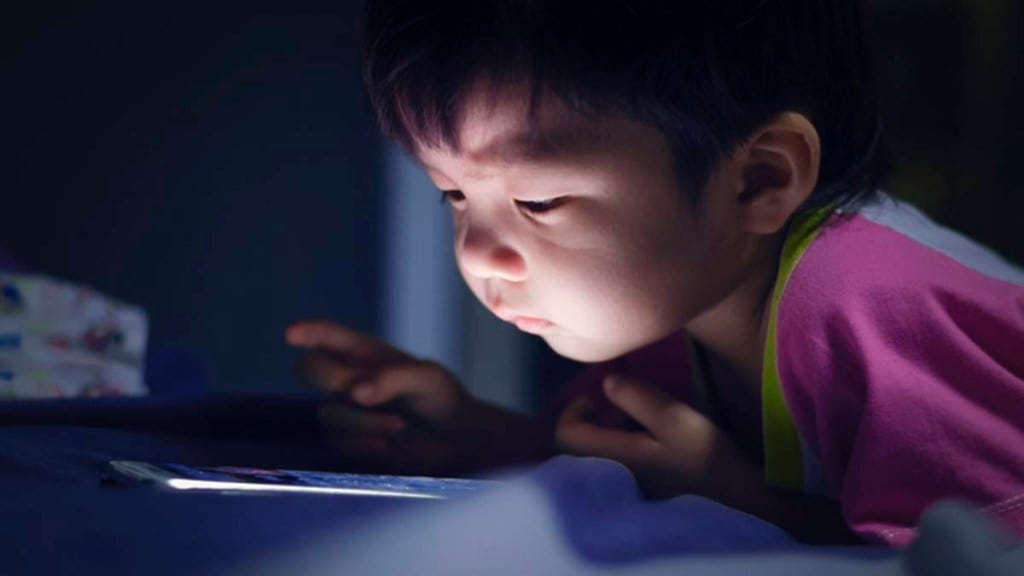Imagine your day, without scrolling posts and reels on Instagram or sharing memes with your friends. In our daily routine, checking what’s happening in other’s lives, and sharing about our lives with others is becoming one of the most important things to follow. Undoubtedly, that is the major reason that social media is often labeled as being a “Highlight reel’ which means everyone out there shares their best moments that they want people to see. But it doesn’t mean that everything is true or real in a sense.
“The constant urge to portray their lives as picture-perfect, the fear of missing out (FOMO) in the crowd, and cyberbullying can cause severe mental stress among youth and even lead to suicidal tendencies. Not only does this adversely affect their mental health, but it can also be addictive, leading to anti-social behavior, addiction, and social anxiety. To control the impact of social media on youngsters’ lives, it is essential to set boundaries, and parents and educators need to initiate open dialogue and educate youngsters about digital well-being,” said Tanya Jawa, Clinical Psychologist, Mental Health and behavioural Sciences, Max Super Specialty Hospital, Vaishali.
Every coin has two sides – one is positive and the second is negative. While social media platforms have brought about many positive aspects such as connectivity, information sharing, and community building, they also come with potential drawbacks to endless scrolling that can affect mental well-being, especially among the younger generation of the nation, who are highly exposed to these social media platforms and the taste of overnight fame as well as success.
Despite the many ways in which social media allows all of us to connect with others including our loved ones near and far, the nature of those interactions can lead to more disconnection than connection in real life. It is becoming a notion among the younger generation that they are virtually connected that somehow protects them from loneliness. But it’s important to understand that sometimes it can, but not always. In the conversation with Sandeepa Kaur, a Licensed Clinical Psychologist, she said. “In the digital era, social media has become an integral part of young people’s lives. While it offers connectivity and information, concerns have arisen about its role in deteriorating youth mental health. To control its impact, education is key. Schools and parents should teach digital literacy and promote healthy online habits. Ultimately, striking a balance between online and offline activities is crucial for preserving youth mental health in the age of social media.”
There are a lot of issues that can arise, but we must not forget that social media also has transformative potential. They can be a place for fostering connecting, encouraging empathy, and promoting social activism. “Young Indians are the first generation that does not know of a world before cell phones and social media. For them, there is no distinction between an online and offline life – it’s all one life, where the online is wrapped up with the offline. The relentless cycle of attention-grabbing through any means necessary (and typically the most reactionary) has a huge impact on the mental health of Gen Zs, among whom depression, anxiety, and loneliness are now common issues. We need to analyze, comprehend, and train the young – and ourselves – about the ill effects of being always connected, so we can take control of our consumption and attention,” said Nikhil Taneja, Co-founder of Yuvaa.
Adolescence has always been a challenging phase of life for all, either with or without social media. It’s a period when depression, loneliness, and anxiety surface among youth. That is why, they start spending most of their time on social media to not feel lonely, and anxious.
“The younger generation is facing loneliness, lack of identity, and self-doubt more than previous generations. The excessive use of social media also leads to addiction-like behaviors affecting daily routines, inadvertently impacting mental well-being. Setting time limits would facilitate more human interactions, and educating and bringing awareness to help people realize the difference between curated online personas and real life would help to curb many of the adverse effects youngsters face. Occasional digital detox would help the individual reset while promoting offline activities, allowing more face-to-face interactions,” Sharon Joseph, Psychologist at DocVita concluded.
The issue of increasing usage of social media by the younger generation of the nation and its impact on their mental health is not a one-dimensional problem. As we navigate this new era of digitalization, it is our collective responsibility to ensure that our young people are equipped with the resilience and skills to thrive, both online and off.
“We live in a world that encourages materialism, where only success is applauded. We are so busy chasing the next big goal that we don’t have the time to pause and appreciate everything we’ve achieved and survived so far. And while we may successfully achieve our goals and live that aspirational life, we often lose connection with ourselves. It’s our inability to manage our own thoughts and emotions and hence the overindulgence that needs to be addressed,” explained Bhavna Thadani Padiyath, Life Coach and Co-Admin of Coto Community- Wellness Warriors.








